If you’re looking for a way to improve as a utility industry professional and learn alongside your peers in project-based online courses, then consider the Pro-UVM Certification Program through the University of Wisconsin-Stevens Point.
Adam Warf, a UAA Board Member and Utility Business Developer and Consultant, experienced the value of the courses supported by the UAA and Utility Vegetation Management Association when he enrolled during the initial beta program in 2017.
“At that time, I was in a place in my career where I was moving out of the field and into a management position,” Warf recalls. “This felt like the perfect opportunity for me to expand my skill set and get a better understanding of overall UVM program management.”
Professionals designed the 100% online curriculum to enhance career development. Course leaders teach students what they need to implement, manage and sustain a utility vegetation management (UVM) program. Those enrolled can earn certificates and a credential in three separate phases. The focus includes applying the industry’s best practices related to safety, integrated vegetation management (IVM), project management, and sustainable utility corridor planning.
“The layout of the course allowed for collaboration across everyone involved,” Warf says. “I learned a lot about UVM challenges across North America, and discovered UVM techniques from around the world. I guarantee something you learn in this course will help improve your company’s UVM program.”
“When I started in vegetation management, I knew nothing about what I was getting myself into,” says Amanda Opp, a Certified Utility Vegetation Management Professional (CUVMP) at Flathead Electric Cooperative, and UAA Board Member. Opp has a degree in civil engineering and initially worked as a Geographic Information System Specialist. Then she saw an ad for UVM Management Certification, which at the time was taught through Southern Alberta, Canada.
“It was the best decision I ever made. I had 29 mentors built into the class who were telling me about projects at the biggest utilities. You hear how they audit crews and why it’s an important component of the program; how they run contracts and why it’s critical to do it one way versus another. I learned who the stakeholders are and how to engage them. I wouldn’t be where I’m today in my program without those people and connections.”
Today, Opp facilitates courses remotely through UW-Stevens Point, and she learns something new every time she leads a Pro-UVM course with her students. “They’re teaching me as well,” she says.
“All of the Pro-UVM courses had immediate impacts on my career,” says Matt Goff, UAA Board Vice-President and Vegetation Manager with an investor-owned utility (IOU) in the southeast U.S. “While working on the course load and networking with my classmates, I was able to apply our assignments to challenges that I face each day. The benefit of the courses was immediately realized in my everyday work.”
Goff encourages anyone to further their career by enrolling in Pro-UVM Certification. Having a peer group of people to lean on was invaluable to him. The expansion of his professional network continues to pay off long after he graduated from the program, and the credentials he earned demonstrate excellence of a higher standard.
“Our communities expect us to be stewards of the resources we manage. We should be able to discuss the expected outcomes of our management plans with stakeholders rather than simply report results. The Pro-UVM program helps us understand how a process-driven approach to problem-solving can help each manager balance the numerous inputs that must be considered, so that we accomplish our objectives in a sustainable manner.”
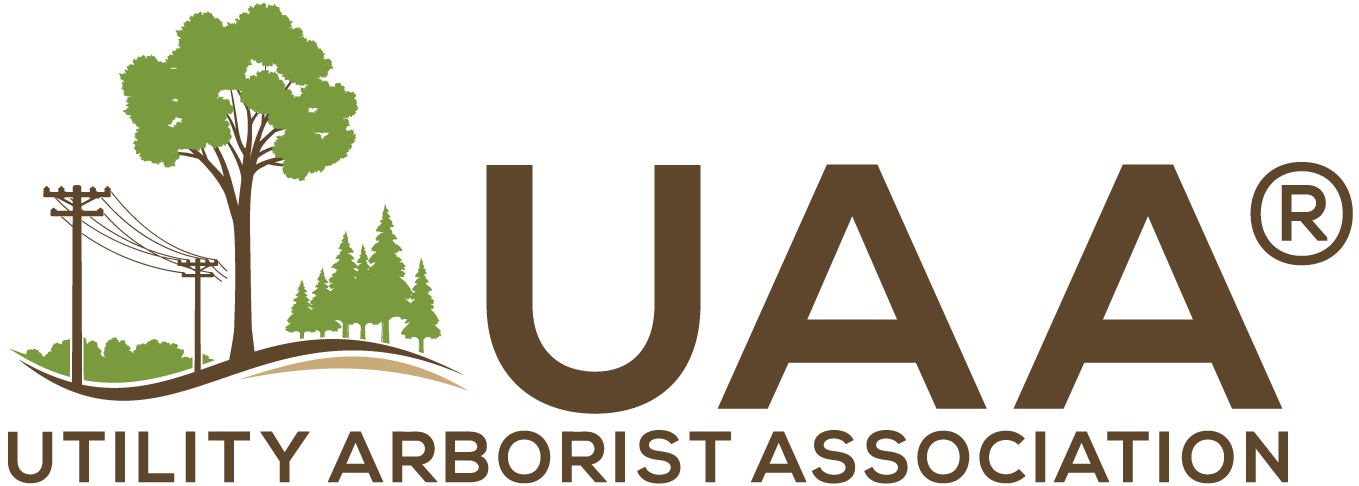
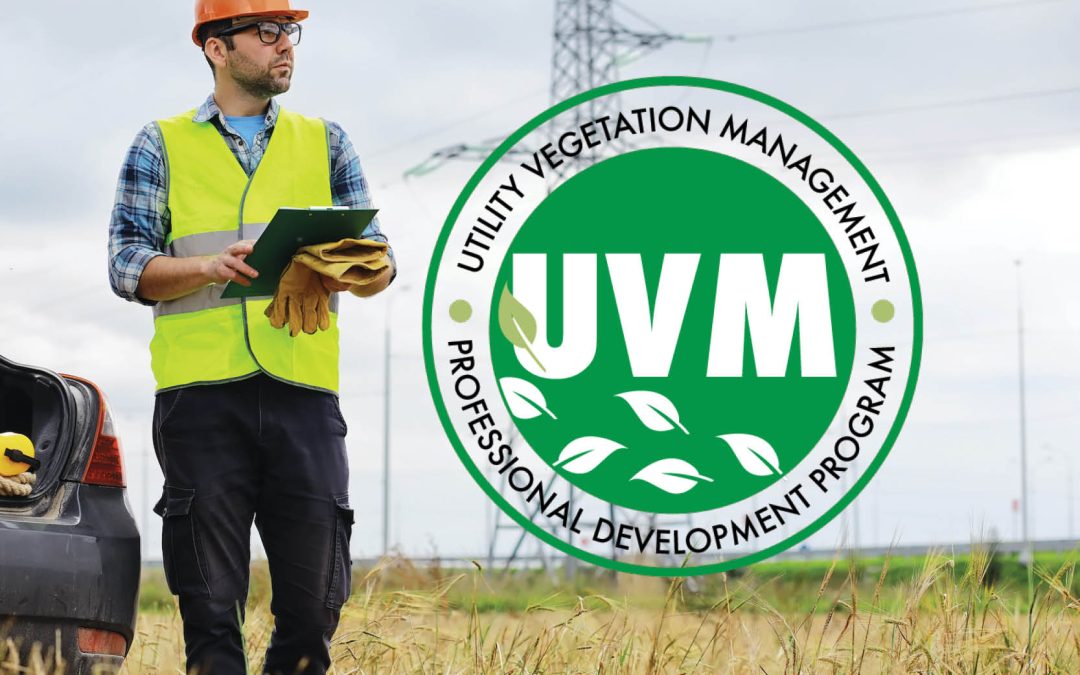
 Cody Woodward is the Membership Office Coordinator for the Utility Arborist Association, where she supports membership operations with a focus on organization and engagement. She blends her experience in organizing systems, interpreting data, and working closely with people to support both the day-to-day and big-picture needs of the UAA.
Cody Woodward is the Membership Office Coordinator for the Utility Arborist Association, where she supports membership operations with a focus on organization and engagement. She blends her experience in organizing systems, interpreting data, and working closely with people to support both the day-to-day and big-picture needs of the UAA. Jodie Braskich is an experienced professional in the utility industry with a strong background in supply chain and vegetation management. With over 18 years of industry expertise, Jodie continues to contribute her time and knowledge to the continuous improvement of the professional field of UVM. She has been a member of the UAA since 2007.
Jodie Braskich is an experienced professional in the utility industry with a strong background in supply chain and vegetation management. With over 18 years of industry expertise, Jodie continues to contribute her time and knowledge to the continuous improvement of the professional field of UVM. She has been a member of the UAA since 2007.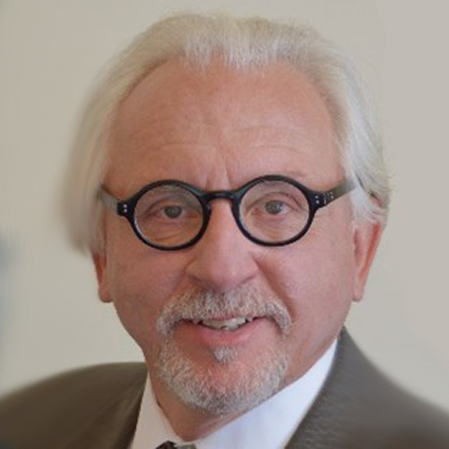 A winner of the David H Nabi Award for dedication and service, Dr. Robert Vanderhoof earned his Ph.D. from the College of Forest Resources at Mississippi State University in 1995. A veteran natural resource manager, Robert spent 15 years as Florida’s Deer Management Section Chief during which time he coordinated range management activities across Florida’s seven-million-acre wildlife management area system.
A winner of the David H Nabi Award for dedication and service, Dr. Robert Vanderhoof earned his Ph.D. from the College of Forest Resources at Mississippi State University in 1995. A veteran natural resource manager, Robert spent 15 years as Florida’s Deer Management Section Chief during which time he coordinated range management activities across Florida’s seven-million-acre wildlife management area system.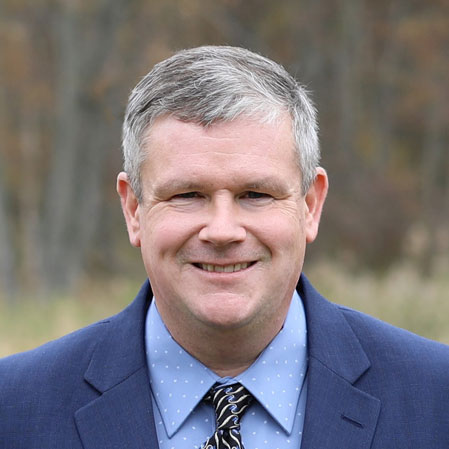
 Cindy is the Senior Director, Vegetation Management Services and she manages departments responsible for maintaining vegetation in REC’s rights-of-way with the goal of reducing exposure of the electric grid to tree caused outages while encouraging habitat and species diversity. Cindy also has a consulting business, EcoAcumen, LLC that focuses on residential, commercial and government clients.
Cindy is the Senior Director, Vegetation Management Services and she manages departments responsible for maintaining vegetation in REC’s rights-of-way with the goal of reducing exposure of the electric grid to tree caused outages while encouraging habitat and species diversity. Cindy also has a consulting business, EcoAcumen, LLC that focuses on residential, commercial and government clients. Kimberly Laing has had an exciting career in the energy industry, gaining valuable experience in various areas for almost 20 years. During her career, she has worked with numerous customers worldwide in a diverse cross-disciplined technical environment. She has extensive experience working with utilities, asset owners, equipment manufacturers, and consultants to facilitate transmission and distribution projects. Kimberly is particularly passionate about Utility Vegetation Management and its vital role in delivering safe and reliable power.
Kimberly Laing has had an exciting career in the energy industry, gaining valuable experience in various areas for almost 20 years. During her career, she has worked with numerous customers worldwide in a diverse cross-disciplined technical environment. She has extensive experience working with utilities, asset owners, equipment manufacturers, and consultants to facilitate transmission and distribution projects. Kimberly is particularly passionate about Utility Vegetation Management and its vital role in delivering safe and reliable power. Josh Beaver is currently senior vice president of Eocene Environmental Group, a utility vegetation management (UVM) consulting and operations firm. Josh has more than two decades of experience within the UVM industry. He is currently responsible for relationship management and oversight of long-term UVM contracts throughout the United States and Canada. He considers customer and community communication to be vital aspects of his role, and he has a proven record of success working with utilities.
Josh Beaver is currently senior vice president of Eocene Environmental Group, a utility vegetation management (UVM) consulting and operations firm. Josh has more than two decades of experience within the UVM industry. He is currently responsible for relationship management and oversight of long-term UVM contracts throughout the United States and Canada. He considers customer and community communication to be vital aspects of his role, and he has a proven record of success working with utilities.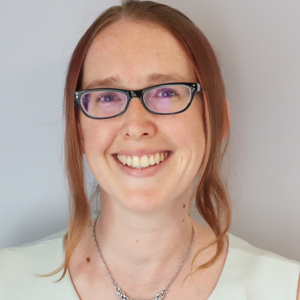 Sam joins the UAA crew with over a decade of non-profit experience behind her. As our Partnership Coordinator, her focused efforts on building relationships with diverse funders will include crafting proposals, cultivating connections, and cohesively earning dedicated sponsors to support the sustainability of UAA substantially and empowering our programs. Well equipped with professional skills which include program development, public speaking, proposal writing, donor relations, working with diverse stakeholders, coalition building, and public-facing service. Sam’s educational background includes a BS in Animal Ecology with a minor in Animal Science, and a MA in Philanthropy and Non-profit Development.
Sam joins the UAA crew with over a decade of non-profit experience behind her. As our Partnership Coordinator, her focused efforts on building relationships with diverse funders will include crafting proposals, cultivating connections, and cohesively earning dedicated sponsors to support the sustainability of UAA substantially and empowering our programs. Well equipped with professional skills which include program development, public speaking, proposal writing, donor relations, working with diverse stakeholders, coalition building, and public-facing service. Sam’s educational background includes a BS in Animal Ecology with a minor in Animal Science, and a MA in Philanthropy and Non-profit Development. Sara Dreiser is a Senior Program Manager with ComEd. She works with a team to oversee ComEd’s routine cycle maintenance and ComEd’s interruption investigation programs. She has been working in the Vegetation Management industry for close to 15 years.
Sara Dreiser is a Senior Program Manager with ComEd. She works with a team to oversee ComEd’s routine cycle maintenance and ComEd’s interruption investigation programs. She has been working in the Vegetation Management industry for close to 15 years. Matt Goff is a Transmission Vegetation Manager at Georgia Power Company. He lives in Brookhaven, GA with his wife, two daughters, and the family’s two dogs Sam, and Payton. For leisure, he enjoys sports with his family, bird hunting, and salt-water fishing.Matt holds a BSFR from the University of Georgia in Forest Resource Management and he graduated in 1997. He has worked in the vegetation management industry for 26 years. His work experience includes six years as a procurement forester for a forest products manufacturer, and 20 years in the utility vegetation management industry with Georgia Power.
Matt Goff is a Transmission Vegetation Manager at Georgia Power Company. He lives in Brookhaven, GA with his wife, two daughters, and the family’s two dogs Sam, and Payton. For leisure, he enjoys sports with his family, bird hunting, and salt-water fishing.Matt holds a BSFR from the University of Georgia in Forest Resource Management and he graduated in 1997. He has worked in the vegetation management industry for 26 years. His work experience includes six years as a procurement forester for a forest products manufacturer, and 20 years in the utility vegetation management industry with Georgia Power.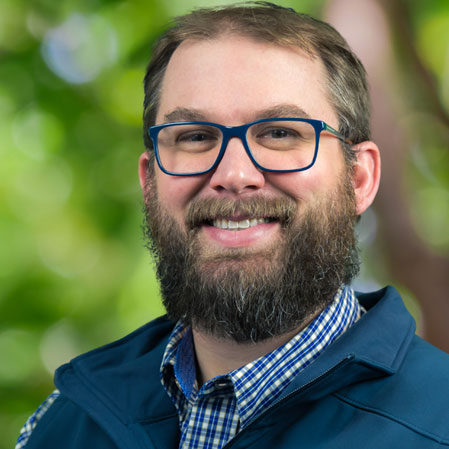 Brandon graduated from Minnesota State University–Mankato with a B.S. in Geography. Brandon has been with Rainbow Tree Company since 2009 and has gained experience in several roles, including Business Developer for our utility products division, GIS Tree Inventory Analyst, and Technical Arborist. Brandon has been the Director of VM Services, the fastest growing division inRainbow Tree Company, since 2012.
Brandon graduated from Minnesota State University–Mankato with a B.S. in Geography. Brandon has been with Rainbow Tree Company since 2009 and has gained experience in several roles, including Business Developer for our utility products division, GIS Tree Inventory Analyst, and Technical Arborist. Brandon has been the Director of VM Services, the fastest growing division inRainbow Tree Company, since 2012.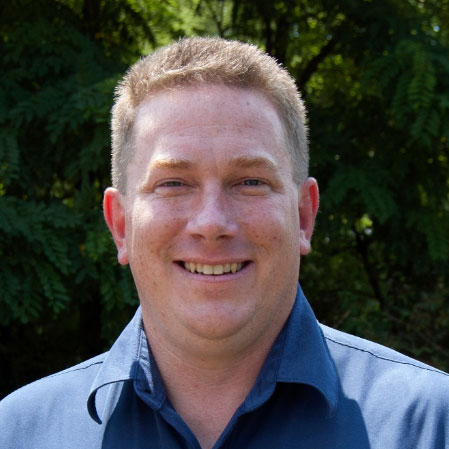 Jim Neeser is a business developer for the Davey Resource Group, a division of the Davey Tree Expert Company. Jim primarily works with utility companies to provide innovative and customized solutions. Jim earned his AA from Vermillion Community College in 1997 and his BS in Forestry with an emphasis on Hydrology and Soils from the University of Minnesota in 2000. Jim is an ISA Certified Arborist with the Utility Specialist endorsement. Jim has been involved in the UAA training committee for nearly a decade as a past chairman and is currently the treasurer and Champion of the finance committee. Jim spent his first 7 years in the industry as a field arborist in the commercial and utility markets. The last 10 years, Jim has been working with utility companies to enhance their Integrated Vegetation Management programs. Jim’s other interests include spending time with his family, sports, hiking, fishing and coin collecting. Jim is also active with the Boy Scouts of America as an Eagle Scout. Jim lives in Forest Lake, MN with his wife and 2 children.
Jim Neeser is a business developer for the Davey Resource Group, a division of the Davey Tree Expert Company. Jim primarily works with utility companies to provide innovative and customized solutions. Jim earned his AA from Vermillion Community College in 1997 and his BS in Forestry with an emphasis on Hydrology and Soils from the University of Minnesota in 2000. Jim is an ISA Certified Arborist with the Utility Specialist endorsement. Jim has been involved in the UAA training committee for nearly a decade as a past chairman and is currently the treasurer and Champion of the finance committee. Jim spent his first 7 years in the industry as a field arborist in the commercial and utility markets. The last 10 years, Jim has been working with utility companies to enhance their Integrated Vegetation Management programs. Jim’s other interests include spending time with his family, sports, hiking, fishing and coin collecting. Jim is also active with the Boy Scouts of America as an Eagle Scout. Jim lives in Forest Lake, MN with his wife and 2 children.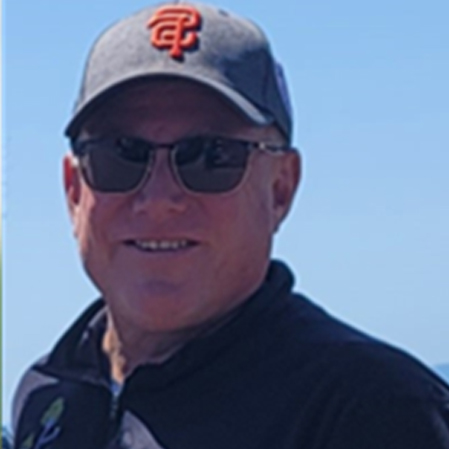 Craig works for Pacific Gas and Electric as a Principal Program Manager in Land Management. His career spans 30 years in the utility industry serving numerous roles. He is an ISA Certified Arborist, Utility Specialist, and hold his TRAQ and is a TCIA Certified TreeCare Safety Professional. Craig has been engaged and involved in the UAA for many years, starting back in 2008. He then wanted more so he ran for UAA President and was elected in 2014. Today, Craig looks back over his 30-year career and wouldn’t change a thing, he’s made life-long friends and considers many as mentors. He also claims he would not be where is in his career if it weren’t for these people, and pledges to pay it forward to support others in their success.
Craig works for Pacific Gas and Electric as a Principal Program Manager in Land Management. His career spans 30 years in the utility industry serving numerous roles. He is an ISA Certified Arborist, Utility Specialist, and hold his TRAQ and is a TCIA Certified TreeCare Safety Professional. Craig has been engaged and involved in the UAA for many years, starting back in 2008. He then wanted more so he ran for UAA President and was elected in 2014. Today, Craig looks back over his 30-year career and wouldn’t change a thing, he’s made life-long friends and considers many as mentors. He also claims he would not be where is in his career if it weren’t for these people, and pledges to pay it forward to support others in their success. Erin Creekmur has been in the UVM industry for over 20 years. After graduating with a Bachelors in Botany from Northern Arizona University she relocated to Northern California to start her professional career. Starting as a consulting utility pre-inspector with Western ECI she quickly moving up to the ranks to Supervisor under the tutelage of folks like Nelson Money. In 2004, Erin joined PG&E as a Quality Assurance Auditor for the VM program. Eventually becoming the Program Manager for the North Coast Division, helping stand up the beginnings of CEMA as the Emergency Drought Response Initiative Lead for the Enhanced Inspection & Mitigation Program, targeting off-cycle hazard trees across the system. In 2015, Erin moved back to her home state of Arizona and took the role of Division Supervisor with Arizona Public Service, managing both transmission and distribution UVM programs out of the Flagstaff area. As part of her role with APS Forestry Fire and Resource Management Department, Erin had responsibility for creating a Hazard Tree Mitigation program. maintaining APS’s ROW Stewardship Accreditation, FERC reporting, and the Transmission Lidar program. In 2021, Erin took a shift in her career and is now Supervising the Customer Construction and Design team for APS, expanding her overall understanding of the Utility industry. Erin continues to maintain her ISA Utility Specialist Certification and TRAQ. She has also completed certifications in both Six Sigma and Lean Sigma Green Belt through accredited universities. In addition to her current service on the UAA Board of Directors, Erin spent the last 6 years as an officer with the Arboretum at Flagstaff Board of Directors. In her free time, you can find Erin in the woods taking pictures of native plants and beautiful western landscapes.
Erin Creekmur has been in the UVM industry for over 20 years. After graduating with a Bachelors in Botany from Northern Arizona University she relocated to Northern California to start her professional career. Starting as a consulting utility pre-inspector with Western ECI she quickly moving up to the ranks to Supervisor under the tutelage of folks like Nelson Money. In 2004, Erin joined PG&E as a Quality Assurance Auditor for the VM program. Eventually becoming the Program Manager for the North Coast Division, helping stand up the beginnings of CEMA as the Emergency Drought Response Initiative Lead for the Enhanced Inspection & Mitigation Program, targeting off-cycle hazard trees across the system. In 2015, Erin moved back to her home state of Arizona and took the role of Division Supervisor with Arizona Public Service, managing both transmission and distribution UVM programs out of the Flagstaff area. As part of her role with APS Forestry Fire and Resource Management Department, Erin had responsibility for creating a Hazard Tree Mitigation program. maintaining APS’s ROW Stewardship Accreditation, FERC reporting, and the Transmission Lidar program. In 2021, Erin took a shift in her career and is now Supervising the Customer Construction and Design team for APS, expanding her overall understanding of the Utility industry. Erin continues to maintain her ISA Utility Specialist Certification and TRAQ. She has also completed certifications in both Six Sigma and Lean Sigma Green Belt through accredited universities. In addition to her current service on the UAA Board of Directors, Erin spent the last 6 years as an officer with the Arboretum at Flagstaff Board of Directors. In her free time, you can find Erin in the woods taking pictures of native plants and beautiful western landscapes. Fallon is a Utility Arborist and Executive Director of the Utility Arborist Association. Prior to his current role he was responsible for leading vegetation management programs across several upper Midwest states on behalf of a large investor-owned utility. He’s also been an adjunct professor at the University of Wisconsin-Stevens Point, where he facilitated the
Fallon is a Utility Arborist and Executive Director of the Utility Arborist Association. Prior to his current role he was responsible for leading vegetation management programs across several upper Midwest states on behalf of a large investor-owned utility. He’s also been an adjunct professor at the University of Wisconsin-Stevens Point, where he facilitated the  Renée is our Member Services Manager. She is available to UAA members for questions on committee assignments, educational opportunities, scholarships, CEU questions, and any other assistance.
Renée is our Member Services Manager. She is available to UAA members for questions on committee assignments, educational opportunities, scholarships, CEU questions, and any other assistance.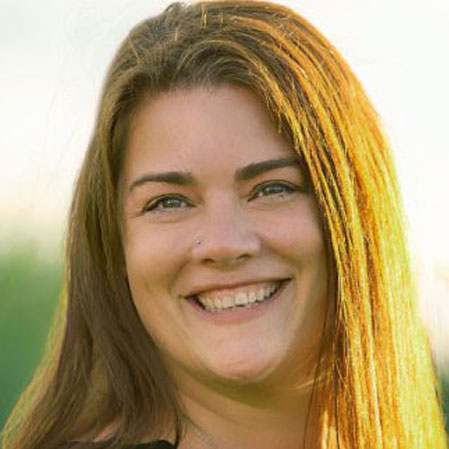 Diona has been with the Utility Arborist Association (UAA) since December 2015 and has worked in various capacities within the organization.
Diona has been with the Utility Arborist Association (UAA) since December 2015 and has worked in various capacities within the organization.